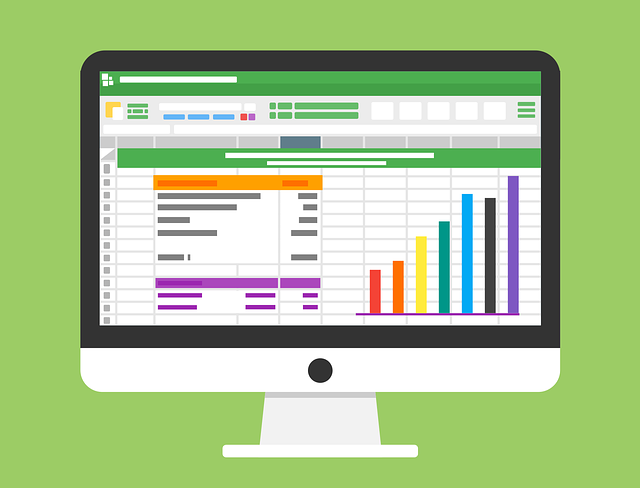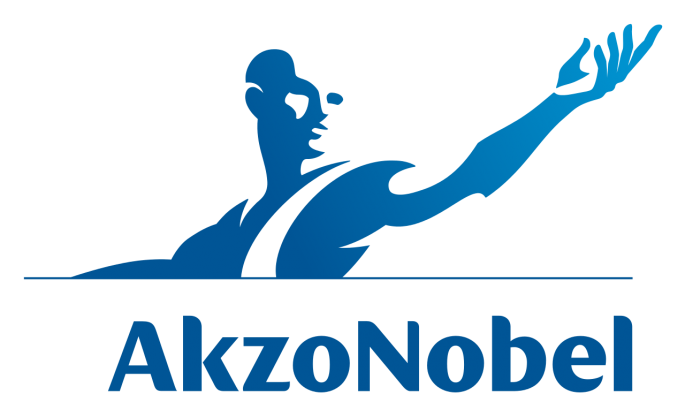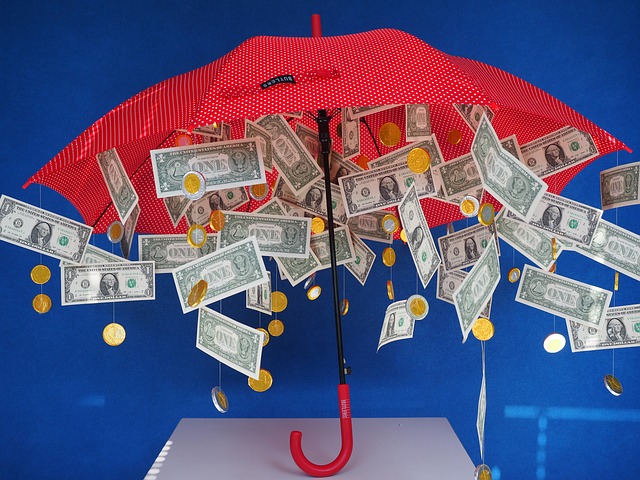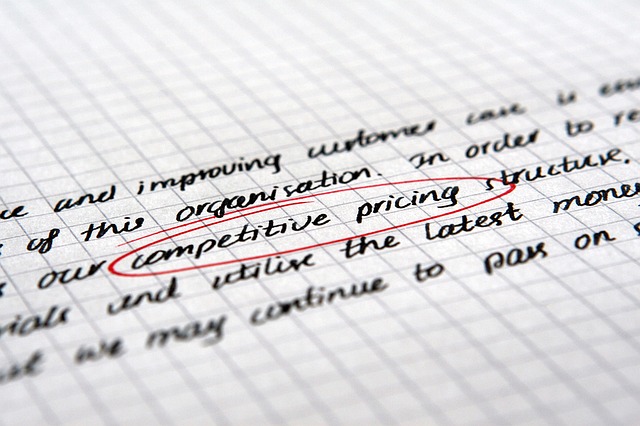What is a Student Loan? A student loan is exactly what it sounds like – a loan given to students to finance their studies. This is most common for college or university students, but also works for trade schools and other vocational studies. Most of the time when a person takes out a loan, they Read More…
Property rights is the foundation of all free-enterprise economic systems. It is what allows people to profit from capital and ideas, without fear of seizure by the government or theft. Definition “Property Rights” usually refers to a set of fundamental rights giving citizens control over their own land, capital, and ideas. Land Property Rights The Read More…
The field of accounting is typically divided into two areas, financial accounting and cost (or managerial) accounting. Whereas the purpose of financial accounting is to report the results and position of a business to external parties, cost accounting focuses on internal reporting for the purpose of improving managerial decision making. This means that cost accounting Read More…
A company’s financial statements give investors, managers, and other “users” a complete, honest look at its financial health. Finished financial statements follow a standardized format, letting investors compare different companies in the same industry apples-to-apples. For the company’s financial reporting team, this presents a challenge – every business’s internal operations are different, but all activities Read More…
Comparative Advantage is the concept where one person, business, or economy is able to outproduce one particular product or service compared to another person, business, or economy. The concept of comparative advantage is essential to understanding both why people choose different careers, and why countries engage in international trade. Comparative Advantage At The Personal Level Read More…
In Economics, “Gross Domestic Product” is the one statistic to rule them all – a measure of the total size of an economy. Definition The “Gross Domestic Product” of a country is the total value of all finished goods and services that were produced in a given year. In other words, this is the total Read More…
The accounting cycle is a series of steps that businesses take to track transactions and consolidate financial information over a specific accounting period (month, quarter, year). The end result of the accounting cycle is the production of accurate financial statements for that period and preparedness for the next accounting period. We will examine the steps Read More…
Property rights is the foundation of all free-enterprise economic systems. It is what allows people to profit from capital and ideas, without fear of seizure by the government or theft. Definition “Property Rights” usually refers to a set of fundamental rights giving citizens control over their own land, capital, and ideas. Land Property Rights The Read More…
International Trade is the system under which businesses, individuals, and governments trade goods and services. This exchange from many different National economies is what makes up the Global economy. Imports and Exports When we talk about international trade, we usually think in terms of imports (the goods and services a country buys from outside) and Read More…
Inflation: how much less a dollar is worth next year compared to today. Most consumers hate inflation – it erodes your savings, and eats away at the real benefits you get from increasing income. However, inflation plays a necessary role in the economy, and without it much of the economy would quickly fall apart. Inflation Read More…
As a society with a market-based economy, the government has three broad mandates: Ensure the common defense Promote economic growth Strive to maintain a just society On the face, only one of these implies direct intervention in the economy, but all three are interconnected with the economy as a whole. This means every action taken Read More…
Government spending makes up a whopping 20% of all spending in the American economy, including the salaries of all government employees, government contracts to private companies, and military spending. This is all paid for by taxes, meaning more than 1/3 of all economic activity filters through the public sector in some way. This means government Read More…
The “Time Value of Money” is one of the most important concepts in economics, investing, and business. For individuals, this determines how much you save and spend. For businesses, it determines how quickly they try to expand. For investors, it decides the mix of a portfolio. What is the Time Value of Money? “Time is Read More…
Accounting is often defined as the backbone of any corporation or business. Without the numbers explaining the day-to-day operation, it’s tough to tell how well or how poorly said company is doing. In order to simplify accounting as a whole, it is easiest to split it into two separate definitions. On one side, there is Read More…
Have you ever wondered how big and small companies gather their customer base? With all the people in the world, how do companies select who to market to? Larger companies use mass marketing to market their products, while smaller companies use market segmentation. What is Market Segmentation? Market segmentation is the process of dividing a Read More…
Brokerages exist to allow individuals to make investments into the larger market. In other words, they connect individuals to the markets as a whole. Securities Brokers help individuals trade securities, the security type will change depending on the broker, but they usually fall into these categories: Cash (including Foreign Exchange markets) Individual Securities Bonds and Read More…
At some point in your business career you will likely be asked to build a case study. Whether it’s for school or for work, building a case study is a very methodical task. While case studies will differ across companies and sectors, your process should remain the same. When conducting a case study, you should Read More…
The love of money… A Case of Fraud at LocatePlus Holdings Corporation In business, greed comes most frequently not in the pursuit of profit but in the form of financial fraud. Individuals who lack or loosen their ethical restraints often rationalize their behavior as unavoidable or good-intentioned. But, make no mistake, people who commit Read More…
Marketing is a word often thrown around as an umbrella term for a wide variety of functions within organizations, ranging from the running of social media accounts to inside sales, and anything in between. Marketing and Value Proposition The truth of the matter is that a successful marketing strategy is deeply rooted in a firm’s Read More…
Do you ever wonder how companies have the money to build new stores, develop new products, or perhaps even buy another company? Usually companies do not keep enough cash for these transactions sitting in their bank account – it needs to be raised from outside investors. There are two main ways a company can fund Read More…
Ethics are a code of values and principles that govern the actions of a person regarding what is right versus what is wrong. They determine our behavior when faced with a moral dilemma. Morals are subjective, in that they vary from person to person depending on their point of view, and the ethical standards of Read More…
Consumers play an integral part in the marketplace. They are the ones who purchase the products, and largely inform the kinds of products that are produced (demanded). This is where the concept of consumer behavior comes in: what drives customers’ purchasing decisions, and how do they use the products and services that they buy. It Read More…
Why Own a Stock? Owning a share in a company means that you are an integral part of the puzzle that helps the company tick. Whether Facebook () or Amazon (), your investment has made you a part of the company. There are many caveats that come with being a part owner of a company: Read More…
There are hundreds of small tips and rules you will hear about managing your personal finances, but putting everything together into one coherent plan can be a daunting task. You have probably already heard about budgeting, spending plans, savings strategies, credit cards, and all points in between – now we will put everything together to Read More…
Your home will probably be the biggest purchase you make in your lifetime. Buying a home not only saves money on rent, but is a serious asset that can appreciate over time. Since homes are so expensive, (almost) no-one buys them in cash. Instead, homes are typically purchased with a special type of loan, called Read More…
Buying a car is usually the first big purchase a person will make. There is also no shortage of horror stories of people immediately regretting the decision, either by buying a new car and later struggling to meet payments, or a used car with hidden mechanical problems demanding costly repairs. When you need to buy Read More…
Big corporations are very powerful entities that can possess more capital than some countries in the world. However, every company begins as a small start-up business. These businesses grow with the injections of capital, both from the founders and from other investors. Going Public At one point, a company’s plans become so big that it Read More…
“Spending Shocks” are large, irregular expenses. According to CBS, more than 60% of Americans cannot absorb a $500 spending shock: spending shocks are the #1 reasons why budgets end up abandoned, and being prepared for large spending shocks is the best thing you can do to keep your personal finances healthy. Types of Spending Shocks Read More…
Everyone needs to start from somewhere. While you build your personal finances from the ground up, you may already have faced times when you had low (or no) income, trying to get any advantage to pull yourself up. There are several public programs specifically designed to help people get out of these situations. In the Read More…
Understanding financial solvency is as important to an investor as it is to a financial manager. Whether it’s having the money to pay off a friendly wager or having the capital to pay off a commercial loan, being solvent is necessary to achieve long-term success. Solvency is the possession of assets in excess of liabilities, Read More…
Risk management is a very important part of any business because it allows for the matching and identification of risk and the associated losses (loss exposures). Practically, this means managers put in place Risk Management Controls. Most business operations are concentrating on maintaining a customer base and building growth. The Risk Management Controls are different Read More…
Building a budget or spending plan is tough. Sticking to the plan is even tougher. Thankfully, there are a few ways you can game the system to make sure you stay under budget, and your savings continues to grow. Budgeting Strategies A “Budgeting Strategy” means different ways to approach your budgeting to build something that Read More…
If you are severely behind on your bills and all other debt management plans have failed, the last option available is declaring Bankruptcy. What is Bankruptcy? Bankruptcy is a type of forced debt settlement, and is a legal procedure. When you declare bankruptcy, the courts will gather all your unsecured creditors together, and hear the Read More…
A cash budget is used internally by management to estimate cash inflows (receipts) and outflows (disbursements) of cash during a period and the cash balance at the end of a period. In other words, a cash budget is a plan for an organization to obtain and use resources over a specific period of time. This Read More…
Leading and directing are important management functions, but usually do not appear in the main job description. A great manager needs to be able to both lead their team and direct their operations – failing either of these roles is a recipe for disaster. Leading vs Directing To understand how managers can excel (or fail) Read More…
If you find yourself over your head in debt, there is always a light at the end of the tunnel. Credit counseling agencies, both for-profit and non-profit, exist in every state to help people build a clear, workable path back to healthy personal finances. If you do need the help of a credit councilor, this Read More…
Cash flow is a concept in accounting that refers to the spending or receiving of cash by an organization. For a given period, cash flow is calculated by ending cash balance less starting cash balance. It is important not to confuse cash flow with earnings, as cash flow is related to solvency (or how well Read More…
If you start falling seriously behind on your bills with simple prioritization and negotiation not enough to catch up, you still have some options available to keep your finances under control. One of the most straight-forward options is Debt Consolidation. When to Consider Debt Consolidation Most adults have at least half a dozen creditors, such Read More…
Stock and bond prices move up and down every day, sometimes by very large amounts. If you want to start investing, the first thing to understand is why these price movements happen, and how to plan for them. Stock Price Movements If you look at the stock for any public company you will often see Read More…
Planning advertising for any business is nothing to be taken lightly. Advertising, after all, is the method by which a business gets its message out to the world. How, and how well, a business advertises its products or services can, and does, make the difference between business success and business failure. Thus, planning and evaluating Read More…
Everyone has had financial emergencies, when a huge spending shock breaks your budget or spending plan into pieces. If you have more than one emergency in a short time, such as if you lost your job, your outstanding debt balances might start to spiral out of control. Even in extreme circumstances, it is still possible Read More…
It happens to everyone: a monetary emergency happens, such as a car breakdown, draining your bank account. Bills are still coming in, and you already know that you will not even be close to paying off everything this month. One of the goals of strong personal finance is trying to avoid these scenarios by having Read More…
Every asset has a value that is always changing. So, what factors affect this change? Things such as earnings announcements, financial ratios, and recent news all go into the movement of an asset’s valuation. The key with all asset valuation is that ratios and prices are always relative. This means most methods for asset valuation Read More…
Operating ratios are a class of ratios that are meant to analyze how well a company is using their assets. Specifically, these ratios show how well a company utilizes its assets to create revenue. Like many of the ratios that are used in financial analysis, operating ratios are complex ratios. Some use simple measures in Read More…
Most people trading on their own will use a basic cash account – you deposit your cash into your brokerage account, which you then use to buy securities like stocks and bonds. For professional investors, like day traders and financial professionals, there are ways to multiply the investment amounts and returns by using more complex Read More…
Social responsibility is having a sense of duty to society and everything that is a part of it. In other words, “social responsibility” means managers are accountable to society at large, not just their shareholders. Social responsibility is an important aspect of capitalism at large. Individuals and consumers place trust in businesses to “do the Read More…
Risk Management is when a manager tries to organize his company (or business unit) to prepare in case of, and try to prevent, something going wrong. Risk management is one of the most complicated branches of management, as it requires managers to be able to assess unknown situations and try to be prepared for anything. Read More…
Every person makes hundreds of purchases every week. Think about how many individual items you have when buying groceries, how often you eat out or use a vending machine, or how often you buy new clothes. Each purchase has a reason, but each purchase costs money. One of the cornerstones of strong personal finances is Read More…
Every high school student makes a choice when they are about to graduate – enter the job market right away, enter a trade school, or enroll in a university? Everyone will make the same kind of choice many times throughout their lives. If you first choose to work, the option is usually still available later Read More…
Have you ever thought about a career in the finance industry? Have you wondered what is required to be considered a professional in the stock trading world? Well I have good news: you’ve come to the right place! We’ll cover educational requirements and the basics of Series 6, Series 7, and several professional designations in Read More…
Planning is an important management function because it helps managers prepare for the short term and long term challenges and opportunities that a business faces every day. Planning plays a crucial part in creating a business plan and strategic plan in that it reinforces a company’s mission, visions, and goals that are used to develop Read More…
When you are evaluating how to spend your money, most people make a fairly simple comparison – if the benefit you think you will get from the purchase is bigger than the cost, then most people go ahead with the purchase. When you are working to master your personal finances, you might notice a problem. Read More…
Collectively, as a society, we are invited everyday to buy something for various reasons. For instance, we see an ad on TV for a car; so later we go to the dealership and pick-up some information about the car, with the objective being to purchase one. The advertisement on TV is the business marketing the Read More…
“Business Ethics” defines what is right and wrong in a business – not necessarily what is or is not illegal. It is the responsibility of everyone in any organization to maintain high levels of business ethics, as businesses who fail to do so lose the public trust, and the ability to continue to do business, Read More…
Experienced workers have a job search lasting about 43 days, and fresh graduates can expect a longer wait. Your search will be much harder if you make one of the following very common mistakes. Avoiding all 5 will not promise an interview, but hitting any might mean you are missing out. Errors In Your Application When you are applying Read More…
The internship season is upon us. It might be better to say that it never ended. Some estimates put the total number of internships in the United States a bit over 1.5 million positions per year, and with new spots opening with every school term, students with an eye for work experience are usually keeping Read More…
What separates a “good” job interview from a “great” one? There are many factors that will work for or against you when you head in for an interview for a great job. Some factors you don’t have much control over, but most job interview “bombs” are very easy to avoid, if you know what you Read More…
Keywords – the Achilles Heel of every student’s resume. Knowing how to craft a killer resume and cover letter that grabs employers attention (and keeps it) will only help once you get your resume in the hands of a recruiter. Unfortunately, today anyone can apply to just about any job anywhere, so that great new Read More…
Homeowner’s Insurance is a broad type of insurance coverage designed to cover a home and the property it sits on. This insurance is very broad, wrapping many different types of coverage into one package. If you want to take out a mortgage on a home, the institution you borrow from will probably require you to Read More…
“Rental Insurance” is taken out on property you rent to insure against damage. Rental insurance works like a lighter version of Homeowner’s Insurance. Why Would I Need Rental Insurance? As a renter, this insurance does not do you much good. For example, if there is a fire at your apartment caused by one of your Read More…
If you drive a car, you need to be covered by some sort of car insurance. You have probably seen dozens of advertisements from insurance companies claiming to help lower your rates, improve your coverage, or just help you compare, but before you buy your first insurance (or change providers), the first step is knowing Read More…
The Human Resources department at a business is in charge of everything from hiring and firing employees, organizing and implementing training programs, resolving internal conflicts, determining the pay scales, and everything in between. Human Resources Role The Human Resources department is concerned with the specific employees of the company, rather than sales, marketing, or product Read More…
Once you file your income taxes, the IRS will review all the forms you submit, and either issue your return or refund, usually with very little turnaround time. However, occasionally the IRS will ask you to provide some supporting documentation before your return is accepted. The Basics of an Audit An “Audit” is what happens Read More…
Everyone loves getting tax breaks, but what can really ruin your finances in the long-run is forgetting about tax additions – extra taxes and fees that you need to add on to your tax bill. Missing these extra taxes will hurt – taxpayers are currently charged 6% APR on all outstanding tax balances. This means Read More…
Clearly no two products are exactly alike and therefore each merits a unique marketing strategy. However, certain products carry similar characteristics in terms of price level, similarity between competing brands, and the way consumers approach them in the buying process. It is often useful to group these similar products into categories in order to help Read More…
One of the most crucial aspects of developing a marketing strategy is determining an approach to pricing. A company could have a great product and a fantastic promotion campaign, but could still fail if the price isn’t right for customers. On one hand, high prices could repel value-seeking consumers and could result in poor sales Read More…
Revenue vs Gains Revenue and Gains are related fields related to the income a company receives. The main difference between them is the source of the income. Revenue Revenue represents income earned by the firm through the primary goods and/or services provided. It is the income earned from the firm’s operating activities. For example, Mike’s Read More…
Professional accountants are vital to our economy and society. Accountants ensure the effective use of resources by recommending ways to reduce cost, increase revenue, and mitigate risk. The accountancy profession is only as good as the quality of service provided by its members. The regulatory environment of the accounting industry seeks to ensure the quality Read More…
What Is Sales Tax? “Sales Tax” is a tax that is charged on goods sold to end customers. The Sales Tax is a set percentage of the price of the goods sold. In the United States, all states except Alaska, Delaware, Montana, New Hampshire, and Oregon charge a sales tax, but the sales tax will Read More…
Humans and animals have standard life cycles—a series of stages of living that each passes through before death. For people, these phases could include infancy, childhood, adolescence, adulthood, and retirement. Products also move through a series of phases throughout the duration of their lives called the “product life cycle”. The four stages included in the Read More…
When holding a job, there are usually certain people that have specific “titles” that describe the work that they do. With those titles, comes the chain of command, which can be looked at as a flow chart: The CEO –> who oversees Management –> who oversees Associates. These managers organize and coordinate the activities of Read More…
Every firm needs capital to purchase assets like inventory, land, and equipment. They also need cash to help manage expenses such as paying employees. How do companies raise the money they need to run their businesses? The answer is through a mix of liabilities (borrowing money) and equity (selling shares of ownership of the company). Read More…
Marketing is a cornerstone in the success of any organization. However, successful marketing is not as wide spread in large part due to the lack of a marketing strategy and marketing plan. To ensure marketing is successful for an organization, companies need to compose long-term marketing strategies promoting their goals with specific actions. A short Read More…
Short Term Financing “Short Term” financing means taking out a loan to make a purchase, usually with the loan term at less than a year. There are many different types of short-term financing, the most common of which are “Buy Now, Pay Later”, “Unsecured Personal Loans”, and “Payday Loans”. Short Term Financing VS Credit Cards Read More…
Facets of Assets How much is someone worth? One way to think about it could be to add up assets, or everything a person owns that holds financial value. First, think of everyday items like cash, a car, a computer, and perhaps money stored in a savings or investment account. However, there are some less Read More…
Most the taxes paid are through paychecks, so a large part of payroll accounting is properly accounting for all taxes. Most people are familiar with their annual personal tax return, but payroll tax filing works a bit differently. Payroll is run weekly, bi-weekly, monthly, or even semi-monthly, so for each pay cycle, taxes need to Read More…
A company, just like any person, needs to be able to raise extra funds for itself to build new plants, buy inventory, etc. But a firm, unlike a person, has many more options to choose from when it comes to borrowing money. People either get a loan from a bank, or use a credit card, Read More…
One of the first challenges auditors and regulators faced when developing the Generally Accepted Accounting Principles (GAAP) was trying to standardize how companies account for their revenues and expenses. Before GAAP, companies had (more or less) free reign on how and when revenue and expenses were reported, leading to general confusion when trying to compare Read More…
“Slow and Steady” does not always win the race. The business world is very fast paced, competitive, and often a ruthless world where the one who stays ahead of the game is more likely to emerge victorious. “Competitive Advantage” is what businesses have that puts them ahead of the competition. What is competitive advantage? Competitive Read More…
What are the objectives of financial statements? How can accountants best meet these objectives? These are the very questions that the Federal Accounting Standards Board (FASB) set out to address in 1976 when they began developing the conceptual framework. FASB’s goal was to identify the objectives and concepts that govern the preparation and presentation of Read More…
More students than ever are interested in a career in accounting. So, where do you begin? What do you need in order to become a successful accountant? How can you market yourself in the accounting world to stand out among employers? This is a broad overview of what you can do now, and what it Read More…
A key first step for any entrepreneur is setting up an organization that will be used to formally embark on the business journey, but many new business owners struggle to identify the best way to move forward. These are the most common ways to organize a business, from the simplest through the most complex. Sole Read More…
When a company starts to grow, one of the biggest questions they face is how to organize their management. The two main branches of management roles are centralized and decentralized authority. Companies usually fall somewhere between these extremes. Centralized Management Centralized management is the organizational structure where a small handful of individuals make most of Read More…
An Introduction to Equity The Basic Accounting Equation says that Assets – Liabilities = Equity Equity (stockholders’ equity, owners’ equity, etc.) is the claim shareholders of a company have on assets once the liabilities have been satisfied. Equity on the Balance Sheet There are five critical entries on a balance sheet related to equity: retained Read More…
What are Credit Cards? Credit cards is a form of unsecured credit (meaning a loan without collateral) that you can use to make everyday purchases. All credit card purchases are made using a loan – you borrow money from your credit card issuer, and later pay it back with interest. Credit Cards Vs Debit Cards Read More…
Before Debit Cards Before the 21st century, if you wanted to buy groceries or visit the mall, you had 4 options that you could use to pay, all of which had their own drawbacks: Cash, checks, credit cards, and short-term financing. Cash is always reliable to make a purchase, but is prone to being lost Read More…
Every year or two, most of us go to the doctor’s office to receive a check-up on the state of our physical health. The doctor typically checks several measurements (height, weight, blood pressure, etc.) in order to gauge how our health has progressed over the past year. They can then use their results to determine Read More…
Beginners trying to tackle their personal finances for the first time see debt as sort of a “boogeyman”, a specter that looms overhead, trying to trap people into inescapable cycles of minimum payments and late fees. Or at the very least, something to be avoided whenever possible. Deep down, we all know this is not Read More…
Automatic Payments – Blessing Or Curse? That title may be a bit hyperbolic – Automatic Bill Payments can be a huge time saver, and do help make sure your bills get paid on time (avoiding late fees and general headaches). This does come at a price, though – when your bills are automatically paid, you Read More…
When learning about managing your finances, many experts will recommend you begin with a budget. A budget is a tool that tracks income and expenses, and it allow you to set goals and make plans for the future. Developing a budget for a specific project, for a special event, or to help you with your Read More…
Your parents probably have experience reconciling their checkbook by comparing your own written records with their bank statements. In today’s world, reconciling your checkbook isn’t a common activity for two reasons: Paper checks probably only account for a small amount of your total expenses per month You probably have an automatic record with your bank’s Read More…
When you are getting your financial records organized, it is important to keep track of your spending, and with your spending comes receipts. If you think about a typical shopping trip, it is easy to accumulate several receipts quickly as you shop at different stores, stop for a bite to eat, and fill up your Read More…
To be “In Debt” means to owe money to someone else, usually making fixed payments to pay back the amount over time, plus interest. Debt means different things to different people – having some debt is perfectly healthy for your personal finances, but too much can leave you buried. There is also a major difference Read More…
An “Investing Strategy” is a plan for how to save money to help it grow. Sometimes an “investing strategy” can just mean “plan for trading stocks”, but it really means a lot more. Liquidity, Risk, and Potential Returns All investments balance liquidity (how easily it can be converted into cash for other use), risk (the Read More…
What Is Credit? “Credit” is when you have the ability to use borrowed money. This can come in many different forms, from credit cards to mortgages. There is a wide range of ways to use credit, which means that it is often a challenge for beginners to learn all the different ins and outs of Read More…
When should someone start planning for retirement? Fidelity Investments recommends most young people try to save up 2x their annual salary by the time they turn 35, which is a pretty good benchmark to shoot for. Unfortunately, retirement is so far off the mind of most young people that they find their retirement account is Read More…
What is “Labor”? “Labor” is how much a person works. It is the use of time and exertion of effort to produce something of value. Generally speaking, the more valuable a person’s labor is, the higher their wage. Skilled And Unskilled Labor Each person starts off as an Unskilled Worker, meaning they do not have Read More…
“Unemployment” is a major economic indicator measuring how much of the working population is currently looking for a job. The unemployment rate is the most “tangible” economic indicator – if GDP is going up or down, it is harder for people to notice in their day-to-day lives. When the unemployment rate goes up, it usually Read More…
Definition “Price Controls” are artificial limits that are put on prices. If the limit is put in place to prevent prices from getting too high, they are called Ceilings. If they are in place to prevent the price from getting too low, they are called “Floors”. Price Ceilings Price Ceilings are controls put in place Read More…
What Are Interest Rates? Interest rates are growth rates – it is a percentage that is used to calculate how much a loan or investment grows over time. Interest rates are most commonly associated with borrowing money, like a homeowner taking out a mortgage or a government selling a bond. The interest rate is how Read More…






















































































